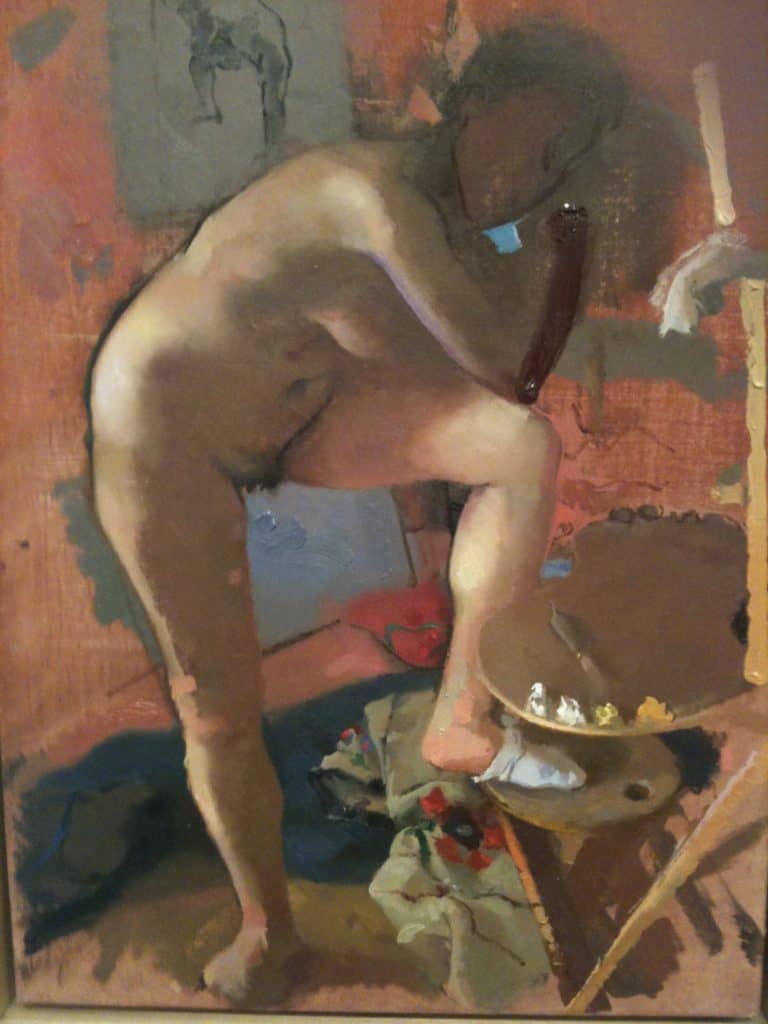This story takes place “east of Eden” in the land of Nod. It begins with her stepping out of the bath, water dripping, a large white towel draped tight around her, hugging the fair skin that had grown pink from the hot water. The door of the bath was almost shut; he could not see her but he could he could hear it all, sitting in the next room in his chair reading Koestler’s, Arrow in the Blue, under a dim lamp. It was a lovely familiar march of sequential sounds… First water splashing, the sounds of washing. She made this kind of groaning noise when she was positioned back against the tub and the full feelings of wet and warm had penetrated. Then almost perfect silence for five minutes or so. Then the sudden standing in the tub, with a rush of water again; one foot, and then the other, onto the floor, with sounds of toweling dry, arms and backside, one leg, then the other. 
There are a hundred different ways to try and tell a story—or maybe better put—to tell the story. Every writer knows the feeling; those who endlessly edit as well as those who don’t and surely should. We all have that story in us, that singular unfolding narrative of life, of ourlife, that is finally all one has, however multiplied, forgotten, distorted or recast. It remains somehow our single story, felt and experienced, inside and out. In that sense there is really no “fiction” in good fiction—just good and bad, better and best ways of approximation in the telling. Homo sum: humani nil a me alientum puto: I am human; I consider nothing human alien to me (Terentius, 150 B.C.). That is what makes creativity so strange and so frightening, how it comes and goes, in flashes and thrusts of thought, then bouncing around like a ping-pong ball against four walls, directions and angles unpredictable.
But back to the bath. There is no way that he could possibly have known or remotely imagined what was to come. Life is like that. The dim firelight of memory is there looking back, but never forward, not even faintly. Only fears, anticipations, guesses, and longings fill that space, that non-existent every present “becoming.”

